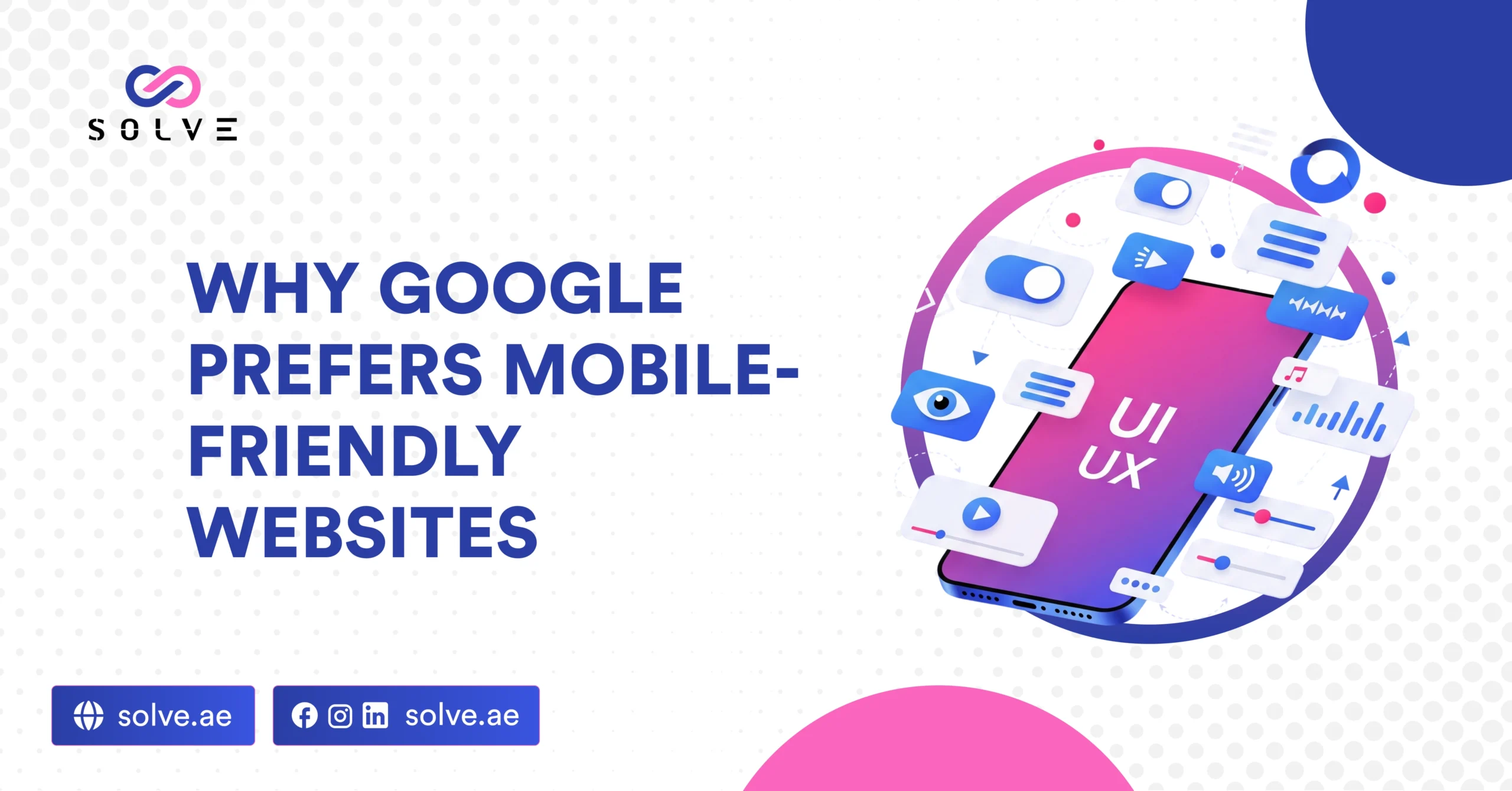- By Vanshika Choudhary
- September 6, 2025
The span of ten years has witnessed massive changes in the internet usage patterns of humanity. Today, it is mostly mobile-first for the search. Be it for locating nearby restaurants, getting hired for service, or just comparing the different products, users expect instant answers on their phones. Recognizing this change, Google introduced mobile-first indexing—”a process that views the mobile version of the website first for ranking.”
For a local business, this change brings the highest level of importance. Most of the customers looking for “near me” services are doing it on mobile devices, so if your website does not provide a good mobile experience, then that certainly means you are losing ranking as well as potential customers. In this blog, we shall be discussing why Google favors mobile-friendly websites and how it affects the local SEO prospect.
The Emergence of Mobile-First Indexing
With mobile-first indexing, Google prioritizes the mobile version of a website over its desktop counterpart. A non-mobile-friendly website may have problems reaching top ranks even if there is a perfectly optimized desktop version, which looks great. The entire approach was brought forth to make sure that users searching on their mobiles receive a good user experience.
These days, over 70% of the searches are from mobile devices in locations such as India and the UAE. The number is rising, with smartphones becoming affordable and with improved availability of internet connectivity. For business companies, it is important to remember a simple fact: when your website fails to cater to the mobile user, you might be throwing away 70 percent of the potential audience.
The local ones suffer the most from this change because, at times, customers have to be on the move while searching for the service. Someone trying to find a plumber nearby expects a quick response with mobile-friendly results. If your webpage does not load on mobile, the competitor’s webpage will get promoted higher by Google. So mobile-first indexing is not only an SEO factor but a must-have business opportunity.
Mobile Friendliness for Local SEO Matters
Whenever customers search for local services, it’s their mobile phones they usually work with. Someone, for instance, in Kolkata looking up “AC repair near me” is most probably on a mobile device. If your site is mobile-friendly, local searches will be favored by Google, thus increasing your visibility. That has a severe, direct bearing on the number of inquiries and clients received through such online search.
This mobile-friendly website is helping to make it simpler for customers to take action. Things like easy click-to-call buttons, map integration, and quick loading allow your users to get through to you immediately. This works especially well for small or medium-sized businesses that rely heavily on walk-in customers or direct inquiries.
Google treats user experience as part of local ranking. If customers jump on your page and get off in a heartbeat because the website is tough to use on a phone, then, of course, your bounce rate goes higher. And in the long run, Google takes this as a signal that your website is of no use to mobile users and tends to push you lower in its search results. So, having a mobile-friendly site prevents this from happening and even helps you rank higher in local searches.
Common Mobile Optimization Ranking Factors
Several factors decide whether Google considers your site mobile-friendly, and if optimally worked upon, they certainly can do much to improve your SEO.
Page Loading Speed: Google favors sites that load faster on mobile platforms. The slower the site, the more frustrated the users become, and thereby they generate higher bounce rates with a lower ranking. In fact, optimizing for speed can do wonders for your SEO. Check out our latest blog post on Easy Mobile-Friendly Website Tips You Can Try Today
Readable content starts with text size and formatting. When a user has to zoom in to read your content, you can rest assured that the mobile usability needs a lot of improvement. Google seeks content that is ready to be accessed and straightforward, free from an extra step or cone.
Mobile Usability: Anything that covers clicking a link, moving smoothly to a section, or filling out a form. If inappropriate arm pinching or odd scrolling techniques are required in the mobile browsing of your site, then it most certainly won’t make it through Google’s Mobile Usability standards.
By placing your actions against these ranking factors, your site stands to gain advantages in visibility for a user and also approval in terms of Google.
Small Businesses’ Advantage from a Mobile-Friendly Website
The small business realm sometimes finds itself playing against the bigger organizations with deep pockets. Having a mobile-friendly site gives them the power to level the market. Your site being mobile-friendly gives it a better chance of appearing in the local pack in the top three map-based search results of Google. That exposure means loads of traffic and inquiries.
Customers who enjoy a smooth online experience with businesses tend to trust businesses more. Easy-to-access information on a mobile-friendly site builds credibility and draws users to choose your service over an outdated competitor website. Trust in local businesses translates into sales and loyal customers.
Another conversion-increasing aspect of mobile-friendly sites is click-to-call and one-tap directions features that facilitate immediate user interaction. If users have to write it down, they go for it. If they get an instant option to click and call, there’s half a chance of turning that visitor into a paying client.
Mobile optimization thus stands as a cheap alternative compared to conventional advertisements. While larger companies get on so many advertisements, smaller businesses can take on a small initiative by ensuring the website meets Google’s mobile criteria.
Local SEO Keywords to Target for Mobile Optimization
The website, being mobile-compatible, is marketed to the correct target audience by local SEO keywords. For example, the terms “mobile-friendly website design services in Kolkata” or “responsive website company Dubai” serve to directly connect the analysts with customers looking for solutions in those specific domains.
Geo-location keywords improve your chances of appearing in local search results. These keywords are also utilized in Google Maps listings, Google My Business profiles, and voice search topics. Hence, these should guarantee that your business comes up whenever someone is searching nearby.
Such keywords need to be incorporated in meta descriptions, headers, and on-site content as well. Keyword consistency throughout your entire website and Google My Business profile will reinforce your local presence. These include phrases such as “mobile SEO consultant near me,” which will help generate traffic from users actively searching for services within your location.
Combine your mobile optimization with these local keywords, empowering the site to become customer-oriented and not Google-oriented.
Hiring Mobile SEO Local Experts
While many online tools are available for mobile optimization, working with a local SEO agency may be worth the advantages. A local agency understands the behavior of customers in your region to tailor its method. For instance, a consultant in Kolkata may say that most searches for services peak during the evening hours, while in Dubai, they may happen during working hours.
Perfect for local agencies is the communication. Meeting face-to-face fosters goal setting on which personalized recommendations can be discussed. It builds a lot of trust and guarantees better care for your project than what generic beginnings are usually offered by agencies far away.
The local expert will aid you in further integrating your mobile-friendly website with Google My Business, maps, and local directories. These measures would be quite necessary to achieve visibility gains in your own area. By looking into technical optimization and local relevance, they create a perfect online visibility balance for your business.
Investing in local SEO services does not deal with rankings alone but deals with creating a solid foundation for long-term growth within a community.
Conclusion
A mobile-friendly website is the preference of Google because it provides a service-based experience to users. Today, most users are on their phones. From mobile-first indexing onward, the benefits of having a mobile-friendly website are plenty to mention. For small and local businesses, it could make the difference between being discovered and being ignored.
If this is still not a mobile-friendly website for your online business, then now is the time to give it attention. Start with a mobile audit, speed optimization, and write your local SEO keywords relevant to your market. Or better yet, work alongside a local mobile SEO expert who knows your audience and will steer you towards long-term profitability.
Want to get your business mobile-friendly in your area? Give us a ring now to boost your rankings, attract a ton of customers, and stay ahead in the competition.




